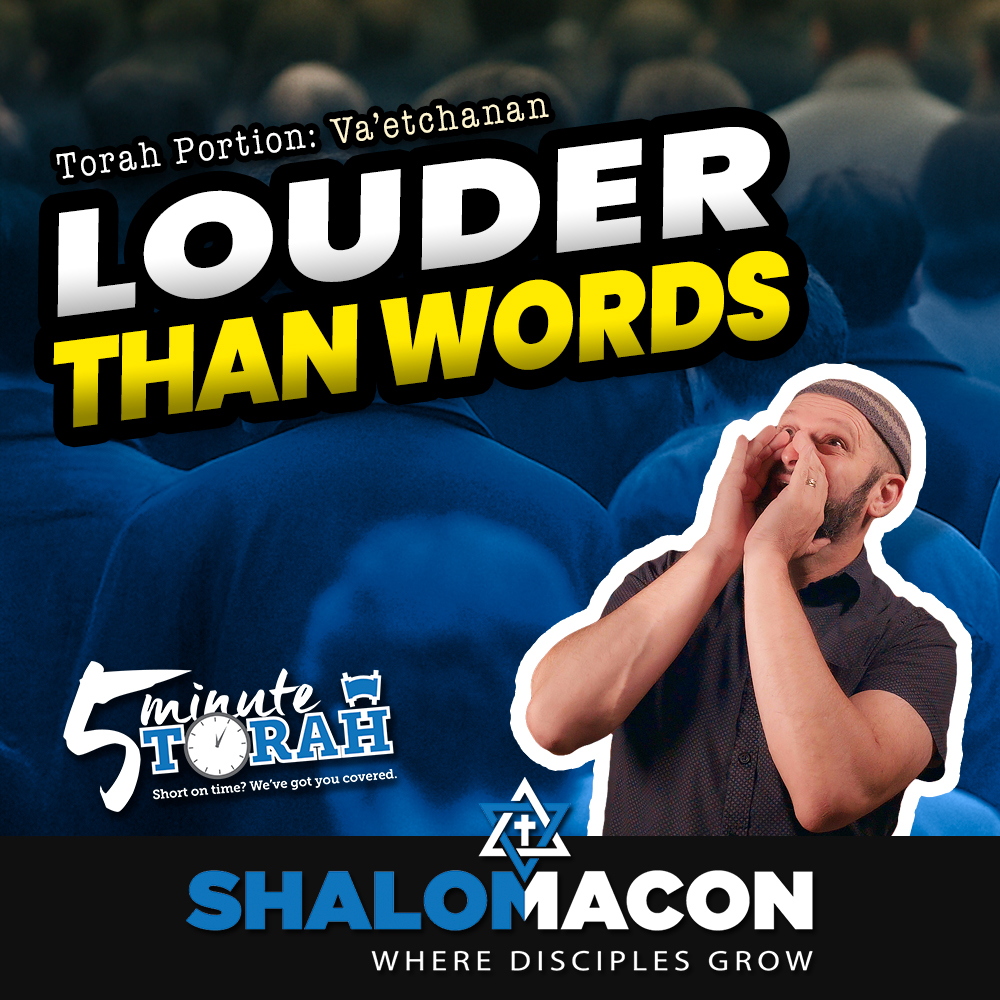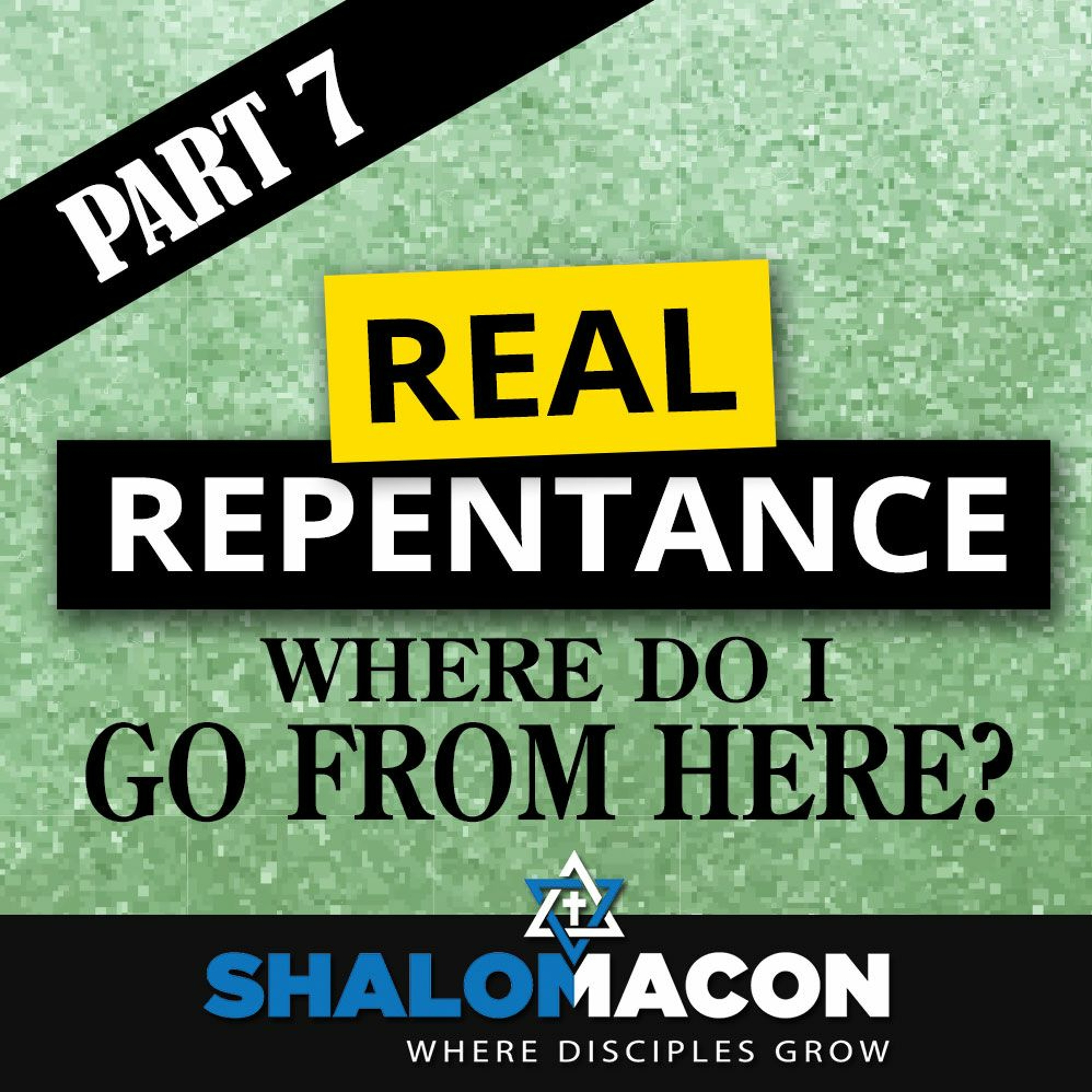[00:00:00] Speaker A: Let's just rip the bandage off. This week we are discussing a controversial topic that causes a lot of different reactions, from anger and hurt to disappointment or even relief. What am I talking about? Does God judge all people equally, or does he have different expectations for Israel versus the nations? By what criteria does he judge us, and what standard does he hold us to? Are gentiles obligated to the Torah the same as the Jews? Paul talks about this one new man, but what does it look like? Does it look like a jew, a gentile, or what? Like I said, it's a controversial topic. So if you'd like to hear what I have to say and then contribute to the discussion, then stick around for this week's five minute Torah.
Welcome back to another five minute Torah. This week we're studying the portion of Ekev Deuteronomy 712 through 1125, and here are the three things that you need to know about it. Number one. Spiritual food. Spiritual service. First, we have the passage in eight three that Yeshua quotes. When being tempted by the adversary in the wilderness, man does not live by bread alone, but man lives by every word that comes from the mouth of the Lord. This, of course, is deuteronomy eight three. This teaches us that the Torah is our spiritual food that will nourish us in times of need. Next, we have a list of the seven species of the land of Israel. And chapter eight and verse eight. These include wheat, barley, grapes, figs, pomegranates, olives, and date honey. Last, in chapter eight, verse ten, we have the commandment to give thanks for our food after we have eaten. It says, you shall eat and be full, and you shall bless the Lord your God. Although there's a tradition to give thanks before a meal, instituted by the rabbis and then popularized by Yeshua, the actual commandment is to give thanks after we've eaten, a difficult task for anyone not already in the habit of doing so. Number two, fear and love. The summary of the Torah. Most people consider the Torah to be a work of legalism, a list of do's and don'ts intended to be rigidly followed as a substitute for a loving relationship with the creator. However, this week's torah portion makes it extremely clear that this is not the case, saying that what God desires most from his children is for them to love him and walk in his ways. And now, Israel, what does the Lord your God require of you but to fear the Lord your God, to walk in all his ways, to serve the Lord your God with all your heart and with all your soul and to keep the commandments and statutes of the Lord which I'm commanding you today for your good. This is chapter ten, verses twelve and 13, and number three, the coming kingdom, circumcision of the heart. As I just mentioned, God's greatest desire is that his children would have hearts that love him and have a desire to walk and his ways. But until the day comes when the new covenant is fully in effect and our hearts naturally desire to serve him, if you want to check out Jeremiah 31, we are commanded to do the difficult work of training our hearts to submit to authority. As the Torah portion says, circumcise therefore, the foreskin of your heart, and be no longer stubborn. This is verse 16. If you're looking for a place to learn, connect and grow, then Shalom Macon is the place. It doesn't matter where you are in the world. You can find a connection with Shalom Macon through our live services every Saturday and through our private social network we call Shalom at home. Check us out on YouTube and on our
[email protected], for more information. We look forward to connecting with you and seeing you this Shabbat this week's Torah commentary is called the making of a new man, and it comes from my book five minute Torah, volume two. As a reminder, the Book of Deuteronomy is largely a recap of the last 40 years of israelite history just prior to their crossing of the Jordan in order to begin taking possession of the land. This week's Torah portion, like so many others, covers a multitude of subjects, although in the stream of one continuous monologue given by Moses to the children of Israel, through this monologue the Lord continually reminds the Israelites of the responsibility to uphold the conditions of the covenant he has charged them with. During this process, he emphasizes the reason they are taking possession of the land he has promised them. Do not say in your heart after the Lord your God has thrust them out before you. It is because of my righteousness that the Lord has brought me in to possess the land, whereas it is because of the wickedness of these nations that the Lord is driving them out before you. Not because of your righteousness or the uprightness of your heart are you going in to possess their land, but because of the wickedness of these nations. The Lord your God is driving them out from before you, and that he may confirm the word that he swore to your fathers, to Abraham, to Isaac, and to Jacob. This is deuteronomy, chapter nine, verses four and five. In this passage, God tells them that they are dispossessing the other nations currently living in the land of Canaanite because of the wickedness of these nations. But what wickedness is he speaking of, and why does he contrast it with righteousness? Wickedness and righteousness are terms that are on the opposite ends of the spectrum in terms of legal responsibility. If a person is righteous, they are legally fulfilling the responsibility within an agreement, whereas a person who is deemed wicked by failing to fulfill their end of an agreement. With this in mind, how does the Lord define the righteousness or the wickedness of the nations? What standard of righteousness are they held accountable to? As far as Israel is concerned, the Torah is explicit concerning their obligation to fulfill the commandments of the Torah. Last week, we discussed the fact that Israels righteousness is defined according to the standard they were given at Sinai. See deuteronomy 625. These have traditionally been enumerated as a total of 613 commandments, which include some of the more notable ones, such as the keeping of the Sabbath, the dietary laws, the wearing of ritual fringes, etcetera. But are the nations held to the same standard of righteousness that was given to Israel? Were the canaanite nations being judged because they didnt keep the Sabbath or eat kosher or wear tzitzit? If not, then what criteria did the Lord judge these nations that Israel was to dispossess? According to most authorities, the nations are judged by the standard given to Noah in Genesis nine after coming off the ark. The laws derived from this chapter are called the Noahide laws. These Noahide laws are categorized into seven broad categories, which include six prohibitions and one obligation. They forbid denying God, blaspheming God, murder, sexual immorality, stealing, and eating the limb of a living animal. There's also the obligation of establishing a system of just courts. These are the basic laws by which those among the nations are judged. I this begs us to ask yet another question. What about those of us from among the nations who have attached ourselves to Israel through accepting Yeshua as the messiah? How will we be judged? Will we be held to the same standard as the nations or that of Israel? This is the question the apostles wrestle with in acts 15. They came to the conclusion that believers in Yeshua from among the nations seem to be in a category somewhere between the two. They weren't simply gentiles anymore, but yet they weren't jews either. Therefore, they looked into the scriptures to find an answer to the situation and then made the decision to put them into the same classification as the stranger who sojourns among Israel, giving them four prohibitions as a starting point. Therefore, my judgment is that we should not trouble those of the Gentiles who turn to goddess, but we should write to them to abstain from things polluted by idols and from sexual immorality, and from what has been strangled and from blood. This is acts 15, 1920. This is based on the directives of Leviticus 17 eight through around 1826 that spell out the obligations of the sojourner who sojourns with Israel. Thus, through Yeshua, there's a creation of this one new man Paul speaks of in Ephesians two, whereby the former Gentile receives a new identity. Emicia he's no longer strictly a Gentile, but neither has he become a jew. He has, however, become something beautiful in the eyes of God. He's become a new creation. As Paul taught the congregation at Corinth, if anyone is in Messiah, he is a new creation. The old is passed away. Behold, the new has come. Second Corinthians 517 and although we will not be held to the exact standard as our jewish brothers and sisters, the bar has been raised and we must work to realize the implications of this. So ive given you my thoughts. What about yours? How much of the Torah do you think gentiles are obligated to? Are our obligations the same as our jewish brothers and sisters? Or are they different? And why do you believe what you believe? Please, I would love to hear from you. I would love to hear your different opinions, back them up with scriptures. But please, please, please be respectful to those who may disagree with you, and I think we can have a great discussion. Let me know your thoughts in the comments below. Wait, you just can't run off like that. It's not because I want to make sure that you've liked this video and that you've subscribed to the channel, but it's because we need your help to fight anti semitism. Antisemitism is at an all time high, and unfortunately it's especially high within the church. Why? Its largely due to a misunderstanding of the book of Romans. Help us fight this battle by educating yourself. Please watch every episode of our series repaving the Romans road so that you can have the tools you need to expose the lies and fight anti semitism. You can get started by using the link above or at the end of this video. Ill see you next week for another messianic insight to the eternal Torah of God. Blessings from Shalom Macon, the place where disciples of Yeshua Learn, connect, and grow.
[00:10:06] Speaker B: Please visit our website, shalomakin.org, to learn more about us, join our live services, access other teachings, sign up for our newsletter, join our private network that will connect you with our greater community from around the world or contribute to the work of Shalom. Macon, thank you for watching, and we look forward to connecting with.



